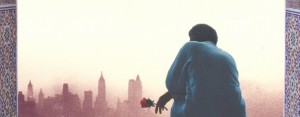Hello readers,
The year is slowly coming to an end and this will unfortunately be my last blog post of the school year! I will be focusing on the novella The Reluctant Fundamentalist by, Pakistani novelist, Mohsin Hamid.
“I will go so far as to sample each of these plates myself first, to reassure you that there is nothing to fear. Here. A piece of warm bread, like so-ah, fresh from the clay oven-and I will begin” (Hamid 122).
“Do not forget to shave before you go” (Hamid 128).
“Yes you are right: they have paused. What do you mean, sir, did I give them a signal? Of course not! I have as little insight into their motivations and identities as you do” (Hamid 176).
“but you should not imagine that we Pakistanis are all potential terrorists, just as we should not imagine that you Americans are all under-conver assassins” (Hamid 183).
These lines from the novella really caught my attention and got me to think about how Arab people were treated, especially by Americans, before and after the events of 9/11. The book had two parts to it, one was between the protagonist Changez who engaged in a conversation with an unnamed guest he met at a restaurant in the old Anarkali district of Lahore, Pakistan, and the other was the story-line throughout the book.
I would like to take a second to discuss about Changez’s conversation with the stranger and how most of the things he said was to reassure the guest that he was not a terrorist in any way shape or form. I understood the stranger’s standpoint and why he acted the way he did, especially after 9/11, but I began to reflect on how ignorant some Americans became and assumed that all Arab people were terrorists. On page 122, 128, and 176 (refer above) I felt demoralized to see Changez having to act, look, and speak a certain way in order to persuade and reassure the guest that he was not a terrorist. When the owner of the restaurant (page 122) brought out the food, Changez had to sample each plate to show him that it was not rigged of any booby traps, which I found absolutely ridiculous. Before Changez left his home (page 128), his mother told him to shave his beard and I immediately assumed that she was saying this in order to protect him from the troubles (racial comments/ rude looks) he would receive once he returned to New York. Change’z identity was slowly being “shaved” off. Lastly, when Changez walked the guest back to his hotel, he became even more paranoid and suspicious that Changez was a potential terrorist when the owners of the restaurant began to follow the same path that they were taking (page 176). This goes to show the unfortunate situations some Arabs have been placed in/ go through on a daily basis after 9/11. If there is a silver lining to any of this, I am hopeful that those Americans who are ignorant or paranoid of those “terrorists” across the street, shopping alongside them or even sitting beside them on the bus will slowly accept them back into their society and treat them as equals, as they did before the events of 9/11.
PS: What do you guys think? Do you think Changez was ultimately planning to assasinate the unnamed guest? Or is he just a hospitable individual who is trying to have a casual conversation with a stranger he met in the old Anarkali district of Lahore, Pakistan?
– Martin
